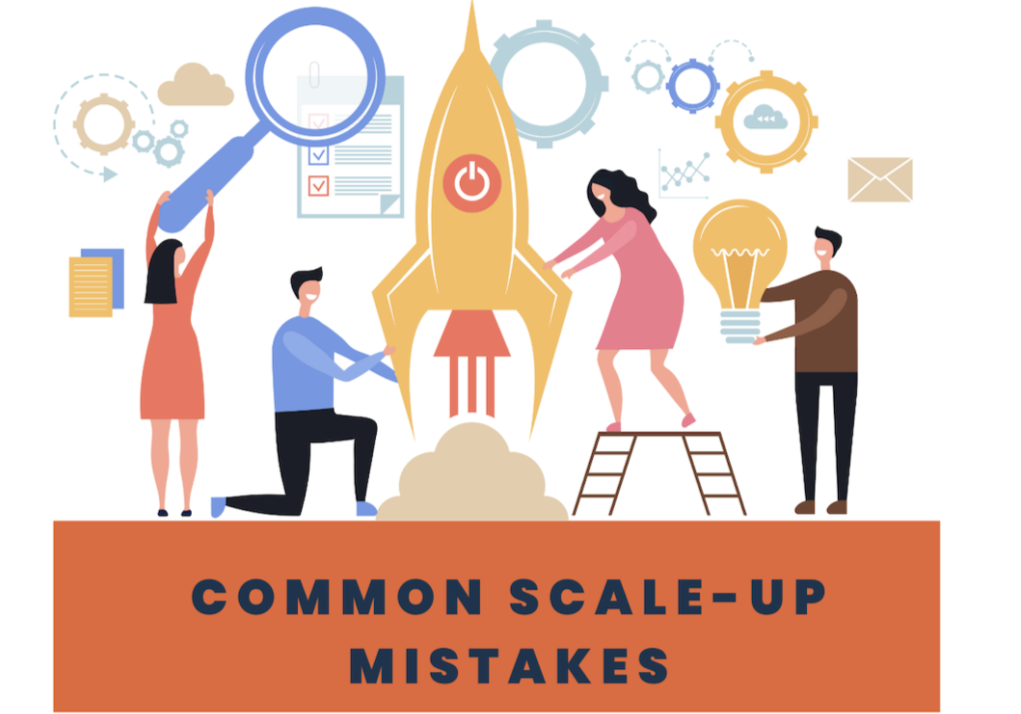
Avoiding Scaling Pitfalls: Common Mistakes and How to Overcome Them
The Challenge of Scaling a Startup
Scaling a startup is an exciting yet risky phase. When done correctly, it can propel a business to new heights, but if done hastily or improperly, it can lead to costly mistakes. Many startups fall into common traps when scaling, such as expanding too quickly, mismanaging finances, or losing sight of customer needs. By recognizing these pitfalls early, founders can take proactive steps to avoid them and create a solid foundation for sustainable growth.
In this guide, we’ll explore three of the most common scaling mistakes startups make and how to navigate them successfully.
1. Scaling Too Early: The Dangers of Premature Growth
One of the most common mistakes startups make is scaling before they’re truly ready. Rapid expansion might seem like a good idea, especially when investor funding is available, but growing too fast without a strong foundation can have serious consequences.
Why It’s a Problem
- Wasted Resources: Expanding too soon can result in excessive spending on marketing, office space, or hiring before actual demand supports it. This can burn through capital quickly without generating enough revenue to sustain the growth.
- Lack of Infrastructure: Without a scalable infrastructure, such as a reliable supply chain, robust technology, or efficient customer service, a business can struggle to maintain quality as demand increases. This often leads to poor customer experiences and potential reputational damage.
- Market Uncertainty: If a company hasn’t fully validated its product-market fit, expanding too soon can mean investing heavily in a business model that isn’t yet proven to work. Startups need to ensure that they have a repeatable, scalable business model before scaling aggressively.
How to Avoid Premature Scaling:
-
Validate Product-Market Fit First: Ensure that you have consistent customer demand and strong retention before expanding operations. Conduct user testing, analyze feedback, and refine your product based on real-world usage.
-
Scale in Phases: Instead of making drastic leaps, implement gradual growth strategies. Test new markets, launch in controlled phases, and measure performance before scaling further.
-
Ensure Operational Readiness: Make sure backend operations, technology, and customer support systems are built to handle increased demand before ramping up sales or marketing.
2. Poor Financial Management: Cash Flow Pitfalls
Managing finances effectively is crucial for scaling successfully. Many startups mistakenly assume that increased revenue automatically equates to financial stability, leading to overspending and budgeting mistakes.
Why It’s a Problem
- Misunderstanding Revenue vs. Available Cash: Just because a startup generates revenue doesn’t mean that it has accessible cash. Payment delays, high operational costs, or unanticipated expenses can create financial shortfalls.
- Poor Budgeting and Overspending: Startups that don’t carefully manage expenses often run into problems, such as hiring too many employees too soon, overinvesting in marketing, or committing to expensive office spaces before they are financially sustainable.
- Ignoring Expenses: Many startups focus solely on revenue growth while neglecting operational costs. Not tracking and forecasting expenses properly can result in unexpected financial strain.
How to Avoid It
- Implement a Cash Flow Forecast: Plan ahead by tracking income and expenses carefully. Regularly update financial projections to ensure you’re not overcommitting resources.
- Maintain a Lean Mindset: Be strategic with spending and prioritize investments that offer clear returns. Consider outsourcing non-essential tasks instead of hiring full-time employees prematurely.
- Secure Contingency Funding: Having a financial cushion or access to emergency funding sources can help a startup weather unexpected downturns or delays in revenue collection.
3. Losing Focus: Maintaining Strategic Vision and Company Culture
As startups scale, some founders become so focused on expansion that they lose touch with their customers. Neglecting customer feedback or failing to prioritize user experience can lead to dissatisfaction and churn, ultimately undermining growth efforts.
Why It’s a Problem
- Lack of Direct Interaction: When a startup grows, it can be tempting to automate customer interactions. While automation can be useful, removing human engagement entirely can make customers feel disconnected from the brand.
- Ignoring Feedback: Scaling should be based on customer needs, yet some startups overlook valuable feedback in favor of aggressive expansion tactics.
- Product Development Disconnect: Rapid scaling without iterating based on customer insights can lead to a misalignment between what the company builds and what the market actually wants.
How to Stay Customer-Focused While Scaling:
-
Actively Gather Feedback: Encourage customers to provide input through surveys, reviews, and direct communication. Use this data to refine products and services continuously.
-
Maintain Personalized Engagement: Even as you grow, ensure customer service remains strong. Implement a mix of automation and personal touchpoints to create a meaningful customer experience.
-
Prioritize Customer Success: Build a strong customer support team that can scale with growth. Investing in quality customer relationships will lead to long-term loyalty and positive word-of-mouth marketing.
Scale Smart, Not Fast
Scaling is a necessary step for startup success, but it must be approached strategically. Avoiding common pitfalls—such as premature scaling, financial mismanagement, and losing touch with customers—can help ensure long-term growth and stability.
By validating product-market fit before expansion, managing cash flow responsibly, and staying attuned to customer needs, startups can build a strong foundation for sustainable scaling. Growth is exciting, but sustainable scaling is what separates thriving startups from those that burn out too soon.
If your startup is gearing up for growth, take the time to assess your readiness and build a plan that aligns with both your business goals and market demand. Scaling isn’t just about growing fast—it’s about growing smart.
